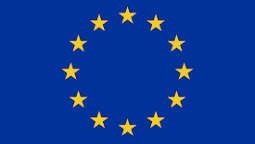Deutsche Telekom has set a goal to achieve climate neutrality by the year 2040. In collaboration with its subsidiary, Power and Air Condition Solution Management GmbH (PASM), it has initiated the use of large-scale battery storage systems to harness renewable energy sources. This marks a significant step forward for the company as it assumes a leadership position in the telecommunications sector, making a proactive contribution to Germany’s shift towards sustainable energy.
Deutsche Telekom, in a groundbreaking initiative with its partners INTILION and Pixii, has integrated two large-scale battery storage systems into Münster’s power grid as of April 24, 2024. Each system boasts a 6 megawatt-hour capacity, crucial for stabilizing the power supply by storing surplus wind and solar energy and releasing it as needed. This technology is essential for compensating for network fluctuations and ensuring the continuous integration of renewable energies, marking Deutsche Telekom as the first in the telecom industry to adopt such a significant sustainable energy storage solution.
Abdu Mudesir, Managing Director of Technology at Telekom Deutschland, highlighted that “..we are the first telecommunications company to rely on large-scale storage, especially in network operations, underlines our claim to be not only a quality leader, but also an innovation leader. The technology combined with cost-effectiveness makes an important contribution to Telekom’s ambitious climate neutrality plans by 2040 and ensures that we set up our network to be sustainable and future-proof.”
Münster’s mayor Markus Lewe also stressed on the importance of the new storage facilities for the city stating that the “..collaboration with Telekom and its subsidiary PASM is a good example of successful partnerships in the field of renewable energies,” says Lewe. “I am pleased that Münster is increasingly developing into a hotspot for storage technologies and battery research, which are essential for the energy transition.”
PASM is expanding its green energy infrastructure with the construction of three new storage facilities in Hanover, Bamberg, and Munich. This expansion will contribute an additional 66 megawatt hours (MWh) to their capacity. By 2030, Telekom and PASM aim to bolster their energy storage capabilities to a substantial 300 MWh and the group’s MD, Bernd Schulte-Sprenge emphasises that “With our large-scale battery storage systems, we can further increase our share of renewable energies and thus actively shape the energy transition”.


 Europe
Europe








